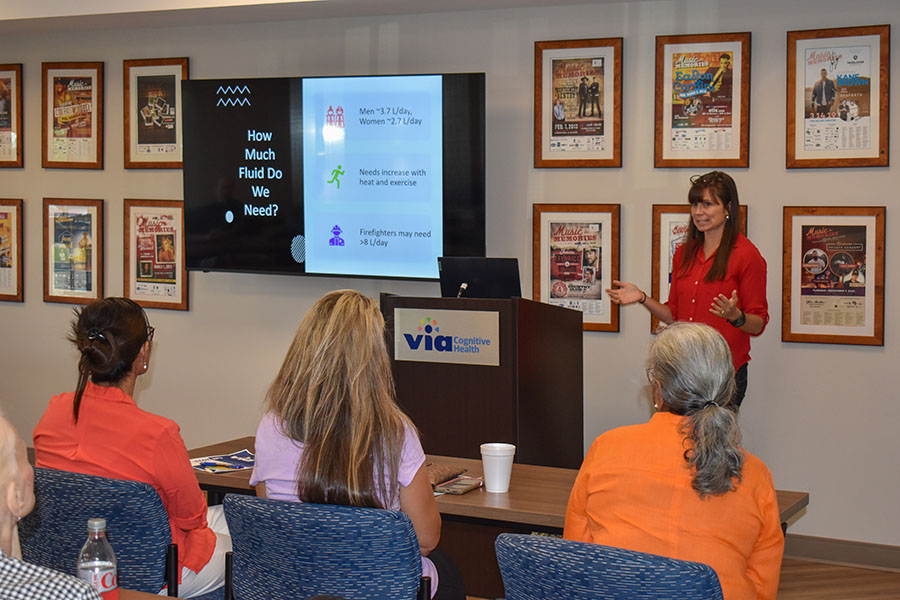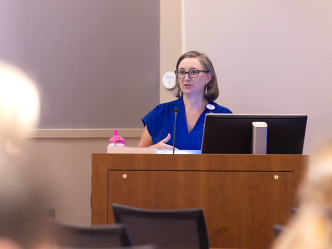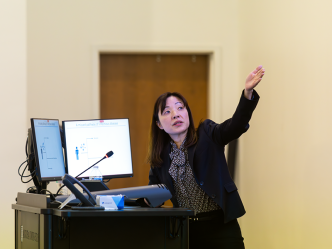Augusta University faculty are sparking curiosity and knowledge in the community this fall as a part of a new continuing education lecture series, created in collaboration with Via Cognitive Health.
A groundbreaking study released by the US POINTER clinical trial shows that a combination of physical activity, improved nutrition, cognitive and social challenges, and health monitoring improved cognition in older adults. The results of this study gave Via Cognitive Health’s Board of Directors momentum to plan a new series.
Zach Kelehear, EdD, AU’s vice provost for Instruction and Innovation and a Via Cognitive Health board member for the last three years, spearheaded efforts to create the lecture series geared towards lifelong learners that highlights the research efforts of Augusta University faculty and engages community members.
Faculty from AU’s College of Education and Human Development, Dental College of Georgia and College of Science and Mathematics served as guest lecturers in the first part of the series with presentations focused on personal health, performance and resilience, as well as the use of technology to enhance daily life.
“Via’s partnership with Augusta University is providing this incredible lecture series on topics we may know little about, creating a real opportunity for learning and cognitive stimulation,” said Jennifer Pennington, executive director of Via Cognitive Health. “It’s exciting to be around intelligent individuals that share their own expertise and challenge us to learn new things.”
Sleep, Stress, and the Silent Battle Within: How Insomnia and Mental Health are Interconnected
One of the topics Maleah Winkler, PhD, spoke on was the interconnectedness of insomnia and mental health conditions like anxiety, depression, PTSD, substance use disorder and suicidal ideation. She discussed how exercise can be used as an effective strategy to reduce both insomnia and mental health conditions.
An associate professor in the College of Education and Human Development’s Department of Kinesiology, Winkler said she wanted to be a part of the series because she loves sharing research that directly benefits the people it’s meant to help.
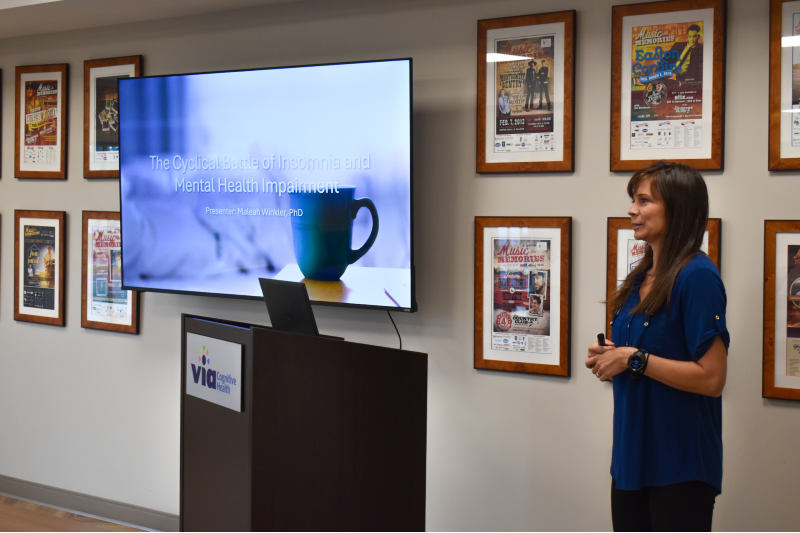
“When research is communicated outside of academics and into the community, it feels very meaningful. I enjoy hearing people’s questions and concerns, and often find them informative and inspiring to keep searching for solutions,” Winkler said. “The audience in this community series provided real perspectives throughout my presentations which helps direct my next steps in research.”
Winkler’s hope for those who attended her presentation was that they gained a deeper understanding of how closely linked sleep and mental health are and that regular exercise may help break the cycle of insomnia and mental distress.
Technology in Health care
Rafael Rocha Pacheco, DDS, PhD, spoke about technological advancements in health care. Participants learned about technologies like 3D printing and how the Dental College of Georgia is using these new technologies to educate the next generation of health care providers.
Pacheco, associate dean of digital technologies and an associate professor in DCG, said he wanted to share how deeply technology is evolving with our future health care providers.
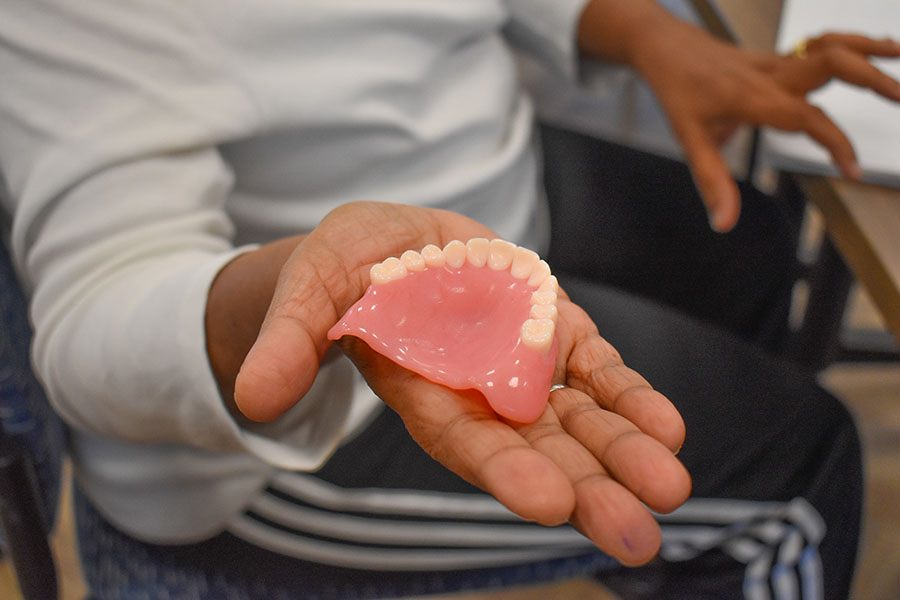
“Being a part of this series made me proud to have the chance to talk about something that we do every day, which is integrating digital technologies into health care and education, and to share that with a broader audience,” Pacheco said. “I wanted to give people a sense of how deeply technology is shaping patient care and the education of our future providers.”
One of Pacheco’s goals of his presentation was to show that technological advancements in patient-centered care are not a distant thought, they’re happening here in Augusta.
“My hope is that participants left not only more informed but also excited to engage in conversations with their families and communities about how digital technologies are enhancing both the present and the future of patient care,” Pacheco said.
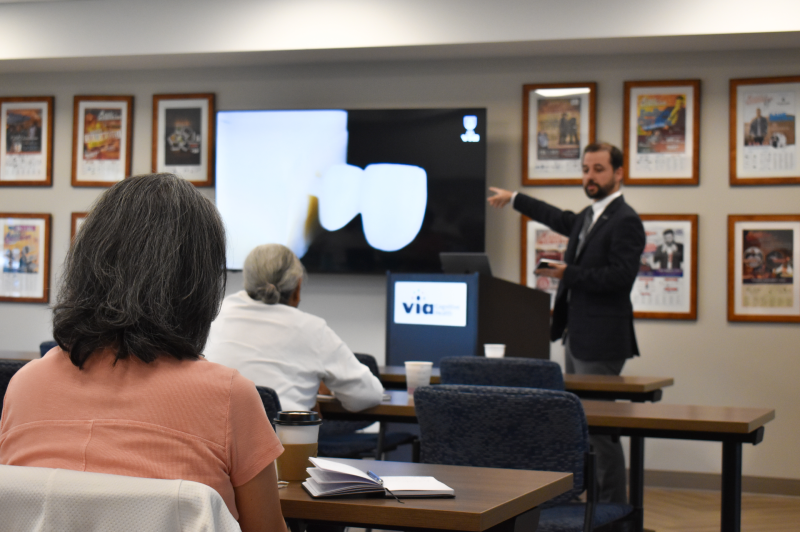
New Technology for Determination of Breath Biomarkers for Disease and Health Identifiers
Guido Verbeck, PhD, chair and a professor for the Department of Chemistry and Biochemistry in AU’s College of Science and Mathematics, delivered several presentations, including the rising use of a person’s breath as an examining method to access physiological markers.
Verbeck’s lab developed the first FDA-approved breathalyzer, created during the COVID-19 pandemic and was granted emergency-use authorization by the FDA in 2020. His team is working towards full FDA approval.
Verbeck shared the results of using the device during COVID, showing successful specificity and sensitivity rates for symptomatic and asymptomatic patients (between 92-99%). Verbeck’s team has since been funded by the Bill and Melinda Gates Foundation to test the device with tuberculosis in South Africa. Currently, over 400 patients have blown into the breathalyzer and testing has shown a 92% success rate showing active tuberculosis. Markers of tuberculosis on the breath are becoming more evident as testing has continued.
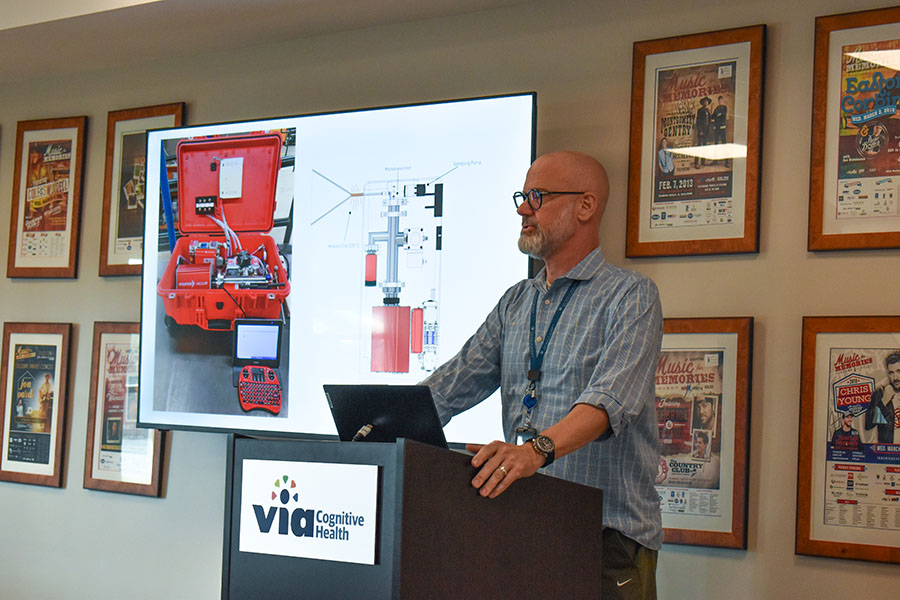
Verbeck said he wanted to help find a way to frame technology in a language the community at large understands.
“The only way to move technology and new invention forward is to be able to communicate it properly and communicate it to an audience that’s more prevalent than the academic peers where it’s typically done,” said Verbeck. “Via Cognitive Health is a fantastic venue for this, because it really teaches us how to engage in the community.”
Coming up
The next session of lectures will take place in the coming weeks and will feature faculty from Augusta University’s School of Computer and Cyber Sciences, Katherine Reese Pamplin College of Arts, Humanities, and Social Sciences and James M. Hull College of Business.
Classes exploring various aspects of artificial intelligence and making wise investments during difficult times begin Oct. 15 and run through Nov. 12. Interested participants can learn more about the remaining sessions and presenters and register as soon as possible.
 Augusta University
Augusta University
